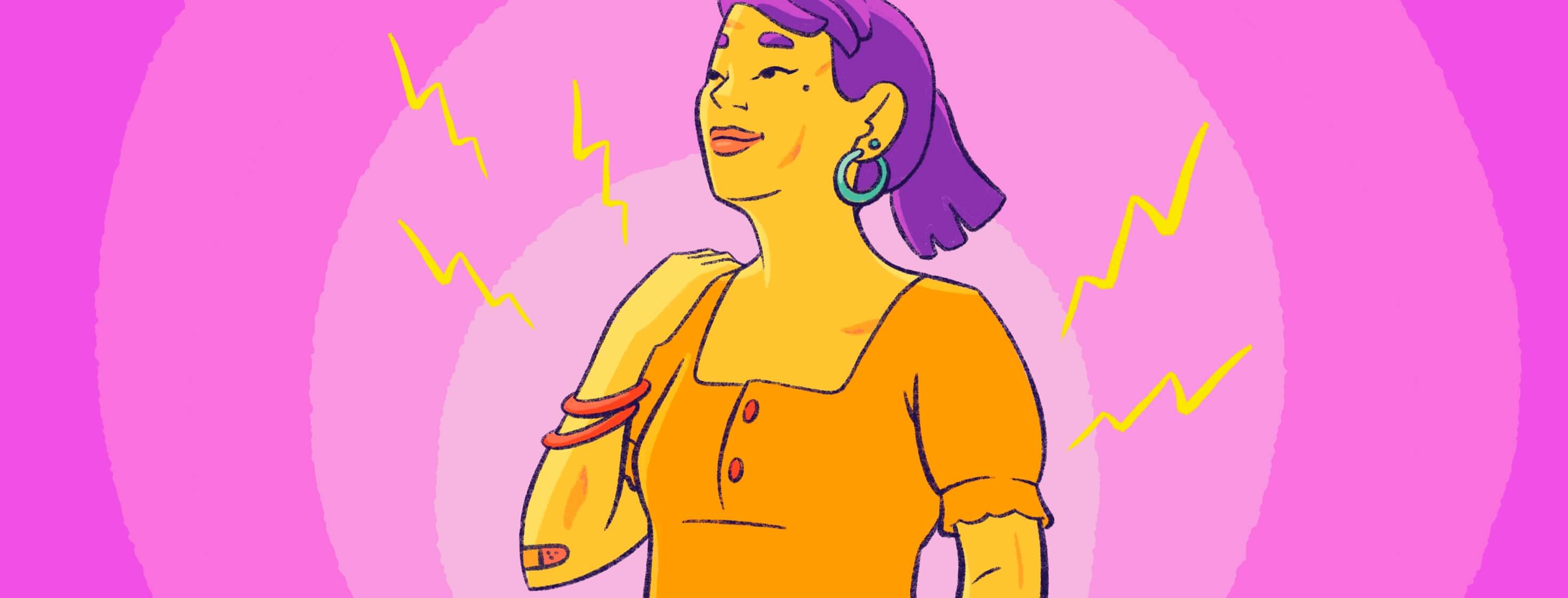Epilepsy Scars: And How I Respond to "What Happened to You?"
Scars are something that mean something to me. Why? Because each of them has a different story.
One of my favorite philosophical quotes is, "Scars are tattoos with better stories to tell."
Don't feel embarrassed if you're asked, "What happened to you there?" People definitely ask me this about my scars.
Brain surgery scars
My surgical scar started as a small straight line on the left temporal lobe. Everyone in my class wanted to see it. Especially the girls when in the bathroom. I was 8 years old and did not know any better until a teacher made me aware that not all the students had to see it.
Then it was time for the second brain surgery. Scars tend to grow longer or in a different direction. My scar became a straight line with a diagonal at the end going up. If my hair is back, it is visible. But frankly, "I don't give a damn," as they say in "Gone with the Wind."
Don't let people make fun of you
No one made fun of me, but I was questioned by most of the people in my class and friends outside of school. But if a person, for any reason, makes fun of you or comments about a scar on your body, it's too bad for them. Don't let them make you feel down. Besides, everyone has a scar-physically, mentally, or both.
Happiness is important to have in life. Be happy to wake up, be alive, and carry on with what you want to do. At certain points of time, happiness could be hard to find – for whatever reason that may be. Maybe it's after having a seizure. That is when it is time to dig deep inside yourself to find it. I learned how to do that later in life, but it is always a good time to learn something new.
Epilepsy changes our plans
Continue to move forward, but remember a stop sign can happen at different points in time. For me this was my third brain surgery.
Two of my friends were supposed to sleep over for my birthday, but I ended up being in the hospital. We never ended up doing our horror movie trilogy night. That was the last brain surgery I had (in 2002) not long before eighth grade graduation.
It leaves its mark
My brain surgeries didn't end up being a guarantee for stopping the seizures, and once again, the scar was enhanced. I now have a Ỵ-shaped scar on my left temporal lobe. Nevermind the old fashion brain mapping procedure, leaving tiny scars in each lobe.
One staple was accidentally left in my head, too. I had to wait for it to fall out. The scar ended up larger. Making it a half inch big. Mom's nickname for it is the "hole in your head."
Answering questions about my physical scars
I will admit, sometimes people ask how the "hole in the head" happened. It depends on the person if I decide to answer with the truth or not. I observe the person's attitude and try to predict their response.
If it's a scar from falling during a seizure and you for any reason don't want to talk about it, you can always lie. The best excuse is sports. My left knee is filled with scars from "mountain climbing," "basketball," "rollerblading," and "shaving." (Wink wink.) I'm ready with a good story for when I get questions (especially if I'm wearing shorts).
The mental scars of epilepsy
If your scars are mental, make sure you speak with someone for help. Figure out what can be done to help you cope with events that may have affected you. Maybe it's yoga, art, writing, etc. As an old TV show on Nickelodeon would say, "Figure it Out" (it was a trivia game show).
Just remember, if a person is able to see it, there is nothing to be ashamed of. Each scar – physical or mental – has a story behind it. And everything happens for a reason.
Never forget, "Scars are tattoos with better stories to tell."

Join the conversation